Swiss image under scrutiny of foreign media
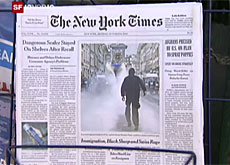
Aggressive pre-election campaigning has captured media attention across the world, but Swiss politics remains complex and difficult to explain to outsiders.
The foreign ministry, which organised special election events for foreign correspondents in Switzerland, says occasional negative headlines are not likely to damage the positive perception of the country.
A week ago police clashed with several hundred leftwing militants who stopped a march of supporters of the rightwing Swiss People’s Party. The People’s Party had been trying to hold a pre-election rally outside the parliament building in the capital, Bern.
Tensions had been building in the past few weeks over the party’s hardline policy on foreigners and immigrants.
Johannes Matyassy, head of Presence Switzerland – a foreign ministry agency in charge of promoting the Swiss image – said articles in the foreign press, notably the New York Times, Washington Post and Britain’s Independent newspaper, had not escaped his attention.
“The headlines of the articles are often negative as well as the tone of the editorials, while the reports as such seem fairly balanced,” Matyassy said.
He said there was definitely more foreign media interest in the elections than four years ago, although a foreign newspaper might limit its coverage to a single article and focus on just one issue.
Negative headlines were not a major concern, he added.
“An article has a very limited and short-term impact. But it could get critical if there are negative reports for weeks which go against the traditional image of Switzerland.”
More information
Presence Switzerland sees no reason to take action. It helps foreign correspondents gain access to the necessary information and to politicians. The agency only reacts to correct obvious mistakes or misunderstandings, according to Matyassy.
The need for further information became apparent at a seminar organised by the foreign ministry in Bern recently.
Representatives of the foreign media wanted to know why controversial black sheep posters by the Swiss People’s Party, perceived as outright racist, were not banned or why there was no transparency and clear regulations on the funding of political parties.
“It became clear that the foreign media has been following the People’s Party campaign closely, but not all the journalists seem to have a thorough knowledge of the Swiss political system,” said Matyassy.
His view was backed up to a certain extent by journalists attending the seminar.
“It is difficult to explain Switzerland’s political system. It’s complex, with too many names of political parties and politicians to remember,” said Ling Yang of China’s Xinhua news agency.
“Only a small group of our readers, mainly intellectuals, are interested in Swiss politics,” added Akiko Lanza from Japan’s Asahi Shimbun newspaper.
Frivolous
Media representatives from neighbouring countries struggle to place Swiss stories in their papers at home.
Agathe Duparc of the French daily Le Monde said controversial issues such as immigrants and foreigners were discussed elsewhere and in a much harsher tone.
Daniel Portmann of Austria Press Agency confirmed that his clients were mainly interested to hear about the People’s Party and its hardline stance on foreigners and immigrants.
His colleague from Italy’s Ansa agency, Silvana Bassetti, said it seemed almost frivolous to write about issues such as poverty or the fear of crime in Switzerland, when readers lived a problem-ridden country like Italy.
Role of media
The role of Switzerland’s domestic media was also questioned in the wake of the riots last weekend.
Oscar Mazzoleni, political scientist at Geneva and Lausanne universities, says the big headlines and strong language used by some newspapers reflected the aggressive tone of the election campaign.
“Until a few years ago the parties tacitly agreed not to discredit their political opponents.
“But in this campaign we are witnessing the break-up of a policy of non-confrontation embodied in the long-standing agreement to share the cabinet seats among the main parties, known as the Magic Formula,” said Mazzoleni.
He added media in other countries were subject to a similar trend of aggressiveness, which was fuelled by growing competition among publishers for readers and advertising.
swissinfo, Urs Geiser, Luigi Jorio and Isabelle Eichenberger
Parliamentary elections are scheduled for October 21. Both chambers of parliament will choose the new seven-member cabinet in December.
The rightwing Swiss People’s Party is one of four governing parties. It won nearly 27% of the vote in the 2003 elections to the House of Representatives.
This year’s election campaign has been dominated by the People’s Party, its controversial justice minister, Christoph Blocher, and the party’s hard-line stance on immigrants and foreigners.
There are about 300 foreign correspondents in Switzerland. Many of them are freelance journalists or people who work part time, according to the Swiss foreign ministry.
Most of correspondents are based in Geneva, the seat of numerous international organisations.
Others report from Zurich, the commercial hub of Switzerland, while only a handful work from other cities.

In compliance with the JTI standards
More: SWI swissinfo.ch certified by the Journalism Trust Initiative
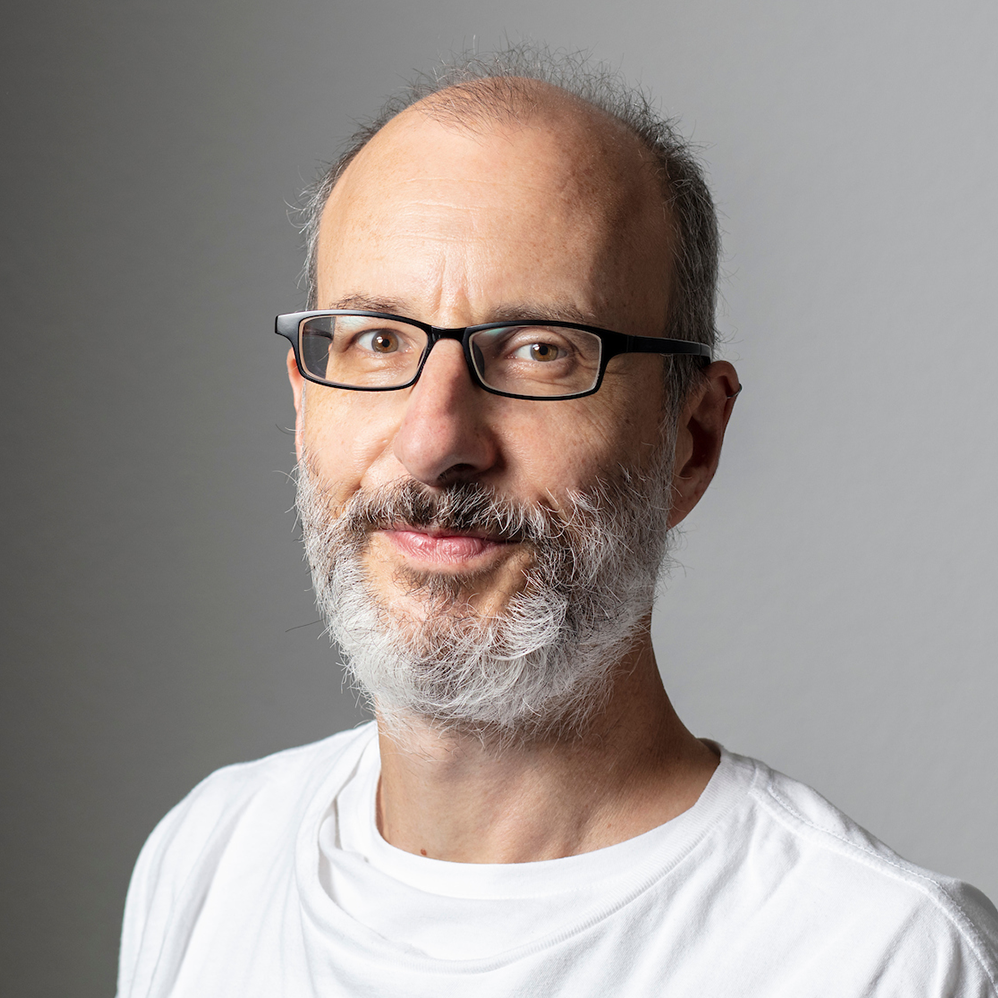

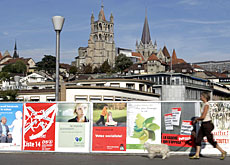
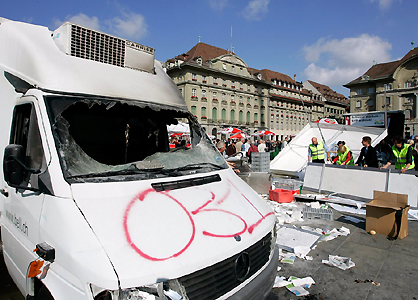
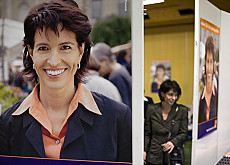
You can find an overview of ongoing debates with our journalists here. Please join us!
If you want to start a conversation about a topic raised in this article or want to report factual errors, email us at english@swissinfo.ch.